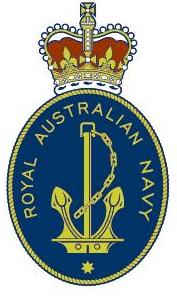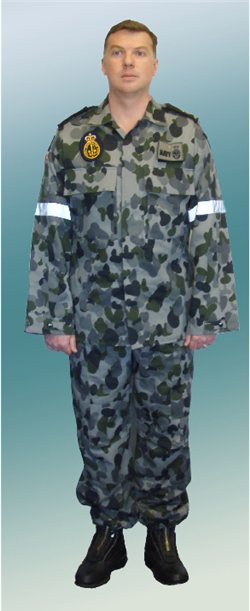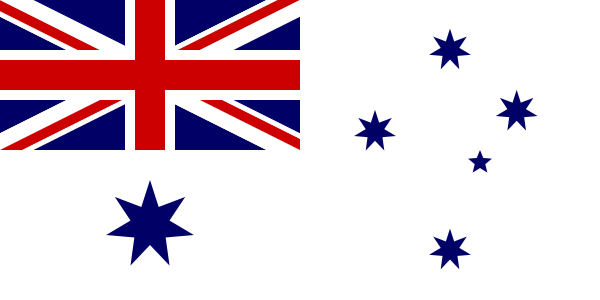Royal Australian Navy
From Daily Escape
(→Naval Weapons) |
(→Australian White Ensign) |
||
| Line 137: | Line 137: | ||
7nOmll Very good article.Thanks Again. Great. | 7nOmll Very good article.Thanks Again. Great. | ||
| - | + | LXmfWG I am so grateful for your blog article.Much thanks again. Want more. | |
| - | + | ||
| - | + | ||
=Uniforms= | =Uniforms= | ||
Revision as of 20:16, 19 September 2012
| Royal Australian Navy | |
| | |
| The Australian White Ensign | |
| | |
| Founded | 10 July 1911 |
| Country | Australia |
| Branch | Navy |
| Part of | Australian Defence Force |
| Naval Headquarters | Canberra |
| Size | 80 ships, about 15,000 personnel |
| Commanders | |
| Chief of the Naval Staff | Vice Admiral Sir Russ Shalders, AK |
| Deputy Chief of the Naval Staff | Rear Admiral Russell Crane CSM |
| Commander Australian Fleet | Rear Admiral Sir Nigel Stephen Coates, AK |
| Insignia | |
| Navy Crest | 
|
| Ship classes | |
| Aircraft carriers | Australia class (Invincible class) |
| Cruisers | Hobart class |
| Destroyers | Battle class |
| Frigates | ANZAC Class |
| Submarines | Collins class |
| Patrol craft | Armidale class, Pacific class |
| Amphibious ships | Canberra class, Kanimbla class, Balikpapan class |
| Auxiliaries | Success class, HMAS Sirius |
| Aircraft flown | |
| Fighter/Ground Attack | Boeing AV-8B Harrier II Plus |
| ASW Helicopter | Sikorsky S-70B-2 Sea Hawk |
| VERTREP | NH Industries NH90 |
| AEW Helicopter | Westland Sea King ASaC Mk.57 |
The Royal Australian Navy (RAN) is the naval branch of the Australian Defence Force. Established in 1911, the RAN was formed out of the Commonwealth Naval Forces to become the small navy of Australia after federation, consisting of the former colonial navies of the new Australian states. The Royal Navy of the United Kingdom continued to provide blue-water defence in the Pacific until World War II, when expansion of the RAN saw the acquisition of aircraft carriers, and other large surface vessels.
After World War II, the RAN was focussed on forward defence in South East Asia, therefore the RAN was structure to provide a carrier battle group to a NATO, or SEATO command. This was centred around the carrier HMAS Melbourne. After withdrawal from Vietnam, Australia changed its focus to a Two-Ocean Navy which would operate indpendently in home defence.
This was to be focussed around 2 carrier battle groups (one for the Pacific Ocean, the other for the Indian Ocean), patrol vessels in the North, and submarines for survellance, interdiction, and special forces support. This led to an expansion and modernisation of the RAN. The 3 Perth class DDG's were replaced with 8 destroyers, 4 Ballarat (Spruance) class for ASW, and 4 Shropshire (Kidd) class for AAW. 2 each of these powerful ships were deployed to each coast. Six Adelaide (Perry) class frigates were acquired to back them up, and also to provide long range patrol in the Southern Ocean, and defence of merchant and amphibious ships. Six River class frigates were used to back the northern patrol forces, and for naval gunfire support.
During the 1980's the plan was completed, with the construction of two aircraft carriers of the Australia (Invincible) class, allowing the retirement of HMAS Melbourne in 1983. All told, Plan 1985 made the RAN the most powerful navy in the Southern Hempsphere.
Plan 1985 gave the RAN the following combat force:
- 2 Australia (Invincible) class aircraft carriers
- 4 Shropshire (Kidd) class guided missile destroyers
- 4 Ballarat (Modified Spruance) class destroyers
- 6 Adelaide (Oliver Hazard Perry) class guided missile frigates
- 6 River (Type 12) class frigates
- 6 Oberon class submarines
At the beginning of the 1990's, the RAN reexamined its force structure, and procurement options, and instead of extending the life of its destroyers by adding VLS, and upgrading the old River class frigates, it was decided in 1993 by the new Minister for Defence, Chris Marshall, to renew the force by acquiring 10 AEGIS warships (4 cruisers, 6 destroyers), 10 frigates, and 8 new submarines. Carrier aircraft were also on the agenda with the Sea Harrier FRS.1 proving inadequate for fleet defence.
Today the RAN is one of the largest naval forces in the Pacific region and has a significant presence in the Indian Ocean, and has undertaken operations in support of military campaigns and peacekeeping missions worldwide.
Today's fleet consists of around 60 vessels including cruisers, destroyers, frigates, submarines, patrol boats and auxiliary ships. The RAN today is one of the most modern in the Pacific and is tasked with the ability to defend Australian waters and undertake operations in distant locations.
The RAN's major ships are derivatives of Western designs. They frequently include Australian improvements, for example, the Adelaide class Frigates are based on the American Oliver Hazard Perry frigates, but include such improvements as an 8-cell Mk 41 VLS for Evolved Sea Sparrow Missiles. Unlike American ships, they retained their Mk 13 launchers, the capabilities of which are extended by the integration of SM-2MR, and Harpoon Block II.
Australia's Hobart class cruisers are Australian made conbatants based on the American Arleigh Burke class, but are larger, with 128 VLS cells, and 16 Harpoon missiles. They are considered among the most powerful surface combatants in the world.
The ANZAC class Frigates were originally intended as light patrol frigates by the Labor government of the late 1980's, but have been progressively upgraded. Upgrades include adding an extra 8 Mk 41 VLS cells (bringing the total to 16), adding 8 Harpoon launchers, and a new mine avoidance system. An active phased array radar is slated for installation from 2009. Australia's Invincible class Aircraft Carriers were built without Sea Dart, the deck space, and space below being used for an enlarged flight deck, and ore hangar space (Australia had no need for Sea Dart, and found that integrating Tartar in its place would be highly expensive for little added benefit). This modification was later incorporated into English carriers. Australia's carriers also replace largely English systems with American systems.
The RAN has two primary bases for its fleet;
- Fleet Base East, which is located at HMAS Kuttabul near Sydney, NSW.
- Fleet Base West, located at HMAS Stirling near Perth, WA.
In addition, there are three other ports which are home to the majority of the RAN's minor war vessels;
- HMAS Coonawarra, at Darwin, NT.
- HMAS Cairns, at Cairns, QLD.
- HMAS Philomel, at Devonport, NZ.
Vice Admiral Sir Russ Shalders, AK is the current Chief of the Naval Staff and was appointed to this position in 2005.
fPEgtY Thanks so much for the blog article.Much thanks again. Cool.
Very neat blog article.Much thanks again. Great.
BIHCL8 Looking forward to reading more. Great blog. Really Great.
QS7sCd I really liked your article post.Thanks Again. Fantastic.
7nOmll Very good article.Thanks Again. Great.
LXmfWG I am so grateful for your blog article.Much thanks again. Want more.
Contents |
Uniforms
The Royal Australian Navy has several different uniforms. The Service Dress uniforms are generally identical to those worn by the Royal Navy, with the exception of the title "AUSTRALIA" appearing on jacket shoulders, and rank slides. Junior sailors however have a different summer uniform, consisting of straight line white trousers, and a button-up white shirt.
Most sailors wear a grey coverall with safety boots as a working dress. Blue cotton drill shirts (called Action Working Dress) and trousers can also be worn (generally ashore, grey tends to be worn on ship).
Clearance Divers are involved in ground combat, and therefore wear DPCU, or DPDU as their working dress. Other naval personnel are issued DPCU and DPDU as required.
Grey coveralls and AWD are being replaced with a fire retardant variation on DPCU. The new uniform will be in the AUSCAM pattern, with various shades of grey replacing the greens and browns of DPCU.

The new RAN Working Dress
Rank Insignia
Service Dress
Officer Ranks
Petty Officers, and Seamen
N.B. There is an RAN rank of Admiral of the Fleet, however only the Duke of Edinburgh has ever held this rank, and it is not considered an operational RAN rank.
DPCU
Officer Ranks
Petty Officers, and Seamen
DPDU
Officer Ranks
Petty Officers, and Seamen
The Future
The Royal Australian Navy currently has requirements to replace the Australia-class aircraft carriers, and their aircraft. The RAN also requires replacements for the Kanimbla class amphibious transport ships.
| | |
|---|---|
| | |







